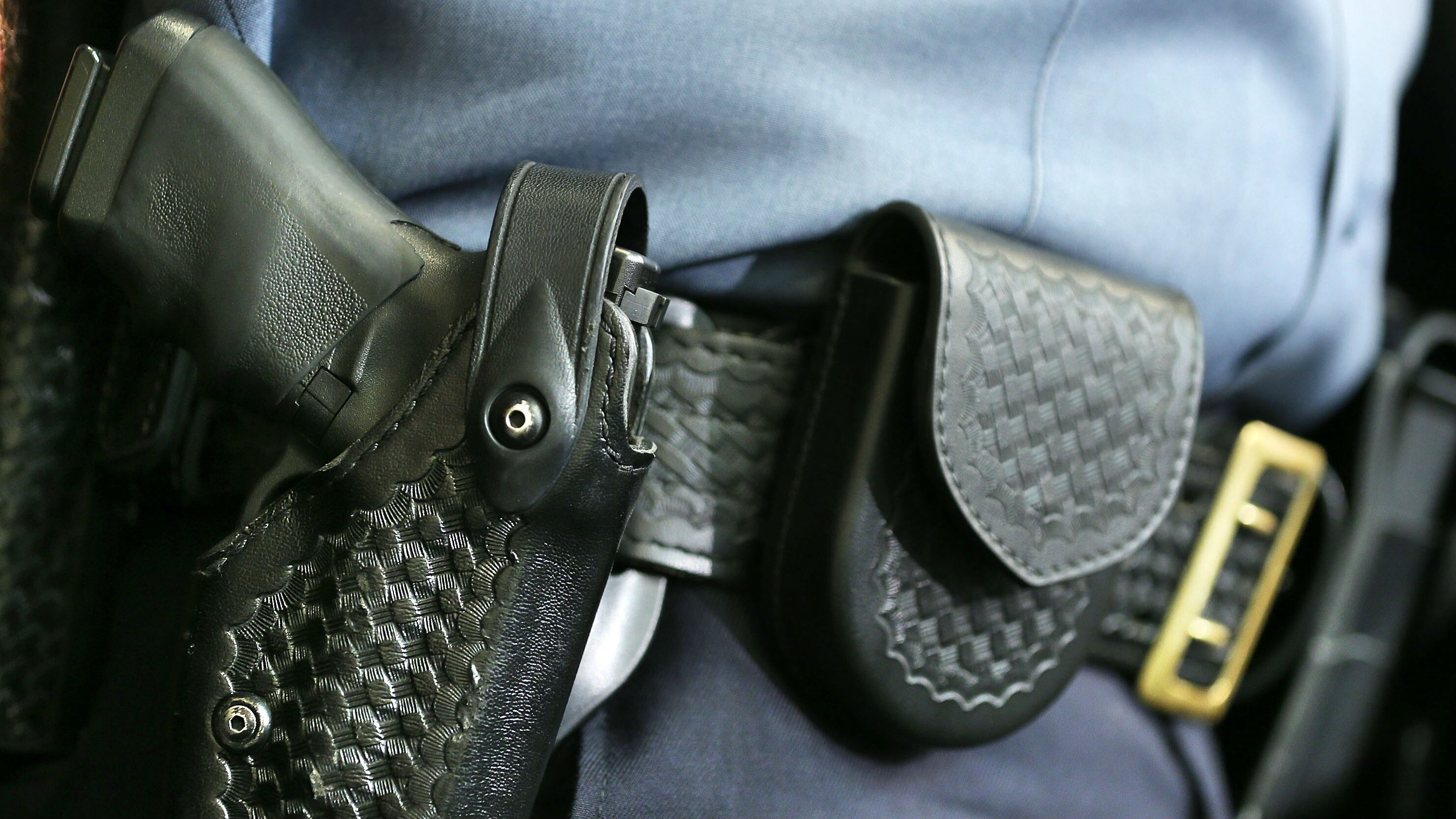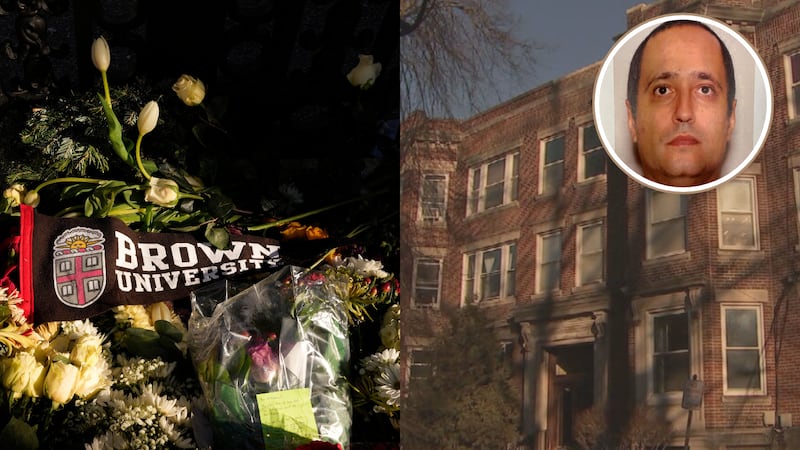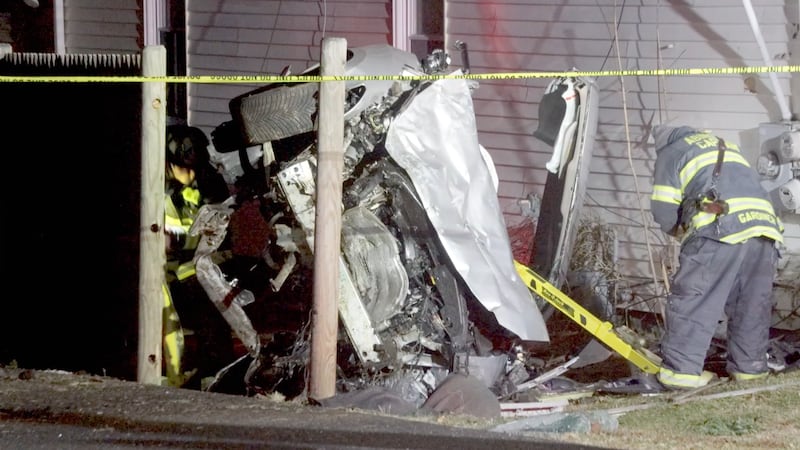CHICAGO — A Chicago police officer fatally shot himself at his home on New Year’s Day, becoming at least the fourth officer the department has lost to suicide in the past six months.
Officer Dane Anthony Smith, 36, was off-duty when he died, according to CBS Chicago. Smith, who worked at police headquarters, died just two weeks after two of his colleagues, Officer Eduardo Marmolejo, 36, and Officer Conrad Gary, 31, were killed by a train as they chased a man they suspected of firing gunshots in the area a few minutes earlier.
It was a particularly tough year for the Chicago Police Department, which lost a total of four officers in the line of duty and at least three to suicide, all within the last half of the year. One of the officers killed himself in his patrol car while on duty; the other two, a man and a woman, died in the parking lots of two of the department’s police stations.
The city’s Fraternal Order of Police described Smith’s death as devastating.
"The FOP is devastated to report that another Chicago police officer has taken his life," the order said on its Facebook page for Lodge No. 7. "We ask that everyone keep this officer and his family in your prayers."
Chicago isn't the only city that has lost officers to suicide in recent weeks. Veteran Cincinnati police Sgt. Arthur Schultz was found dead of a self-inflicted gunshot wound Dec. 20 in a city park.
Just a day earlier in Florida, Hillsborough County Sheriff's Deputy Terry Strawn, 58, killed himself in front of three colleagues after shooting to death his wife, Theresa Strawn, 52, their 6-year-old granddaughter, Londyn Strawn, and their daughter, Courtney Strawn, 32. Terry Strawn, who worked as a school resource officer at his granddaughter's elementary school, confessed to the killings over the police radio shortly before his suicide.
Another school resource officer took his own life in November. Baltimore County police Officer Joseph Comegna, a school resource officer at Eastern Technical High School, fatally shot himself with his service revolver Nov. 12 in his office at the school, the Baltimore Sun reported.
An April 2018 study by the Ruderman Family Foundation found the number of suicides among first responders has greatly outpaced the number of those killed in the line of duty over the past several years. In 2017, when the foundation found there were at least 103 firefighter suicides and 140 police officer suicides, the number of firefighters killed while on the job was listed as 93.
A total of 129 police officers died in the line of duty in that same time frame, reported the foundation. The cause: Post-traumatic stress disorder and depression, which in first responders is found at a rate about five times that of the general population.
"First responders are heroes who run towards danger every day in order to save the lives of others," Jay Ruderman, president of the foundation, said in a statement. "They are also human beings, and their work exerts a toll on their mental health. It is our obligation to support them in every way possible, to make sure that they feel welcome and able to access life-saving mental health care."
The tally likely falls far short of the actual numbers, however, due to the stigma surrounding suicide and a tendency by law enforcement agencies and families to keep a first responder’s suicide under wraps. The foundation reported that the Firefighter Behavior Health Alliance estimates only about 40 percent of firefighter suicides get reported each year.
The number of police officers who died by their own hands is likely extremely underreported as well, study coauthor Miriam Heyman told USA Today. The mainstream media also tends to shy away from reporting a first responder's suicide.
“It’s really shocking, and part of what’s interesting is that line-of-duty deaths are covered so widely by the press but suicides are not, and it’s because of the level of secrecy around these deaths, which really shows the stigmas,” Heyman said.
Nonprofit agency Blue H.E.L.P., which honors the service of police officers who die by suicide and seeks to prevent others from following suit, recorded 159 suicides for 2018. The nonprofit reported the same number for 2017, compared to the Ruderman Family Foundation's tally of 140 that year.
Adequate help for PTSD and depression can be difficult to get, the foundation's study said. Of the 18,000 law enforcement agencies across the country, only between 3 and 5 percent have suicide prevention programs.
The Chicago Police Department, criticized in a 2017 Department of Justice report for its lackluster mental health services for officers, is required under a consent decree filed last year to reform its outreach and counseling services, according to The Chicago Tribune. It is required by 2020 to have 10 clinicians on staff in its employee assistance program.
The department must also provide officers access to emergency counseling within 24 hours of a request and non-emergency counseling within two weeks of a request.
The department, which started out with just three clinicians, has already begun hiring more, police officials told the Tribune in September. Still, law enforcement and mental health experts worry that 10 clinicians won't be enough for the department, which at about 12,000 officers is one of the largest in the nation, according to the newspaper.
"We need to end the silence that surrounds the issue of first responder mental health," Ruderman said. "We should celebrate the lives of those lost to suicide at national monuments such as the National Law Enforcement Memorial, in the media and within police and fire departments around the country. Also, departments should encourage or require first responders to access mental health services annually.
“This will enable our heroes to identify issues early and get the help that they need. It will save lives.”
If you're thinking about suicide or worried about someone who might be, call the National Suicide Prevention Lifeline at 1-800-273-TALK (8255) to connect with a local crisis center. You can also text the Crisis Text Line by messaging HOME to 741741. Police officers can text the word BLUE to 741741.
Texts to the Crisis Text Line are free and confidential, though charges may apply for users with phone plans with carriers other than AT&T, T-Mobile, Sprint or Verizon.
Cox Media Group






